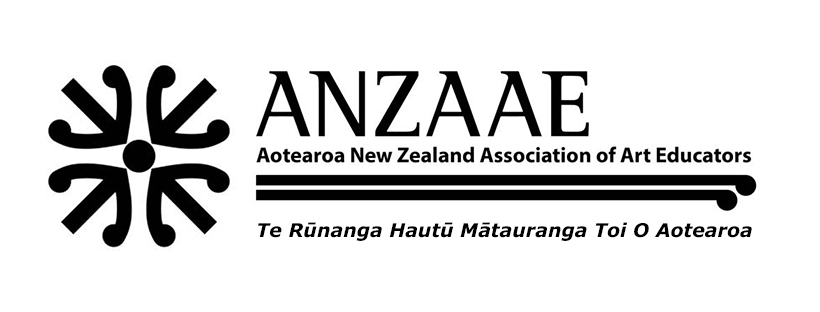Dagmar Dyck – <<==Inter==Generation==>: Reimagining Art-Making as a Collective Pursuit
From a Euro-western/New Zealand standpoint, art is frequently seen as an individual endeavour. <<==Inter==Generation==> reimagines art education through the lens of collectivism, nurturing artists within a supportive and interconnected community.
Deeply rooted in a Kaupapa Māori and Kaupapa Pasifika approach to educating youth in the visual arts, <<==Inter==Generation==> is a case study that challenges the prevailing individualistic paradigm, emphasising the importance of collective learning and recognising Indigenous creative knowledge is deeply embedded in our communities, passed down through cross-disciplinary and intergenerational experiences with knowledge holders embedded in our families and communities. This Indigenous perspective challenges the prevailing Euro-western notion of individualism and highlights the importance of relational cultural identity.
At its core, falanoa represents an intergenerational arts-based research method that aligns with indigenous ways of knowing and learning. It recognises that storytelling, conversation, and connection are fundamental aspects of many Pacific cultures, embodied in the concept of talanoa. In Tongan culture, talanoa involves the act of sharing stories (tala) to explore and unpack the unknown (noa) during social interactions. This practice is a rich source of cultural understanding and expression.
By actively critiquing the existing art education system, <<==Inter==Generation==> offers a powerful alternative that champions future Indigenous creatives. It serves as a rallying cry for genuine social change within the current arts education landscape. Through innovative and effective pedagogical approaches, this presentation demonstrates how Indigenous perspectives on arts education can enrich the lives of youth, foster a sense of community, and ultimately contribute to broader societal transformation.
Biography
Dagmar Dyck is a first-generation New Zealander of Tongan, German, Dutch, and Polish descent. As a visual artist, art educator, and social justice advocate, her navigation in and around different worldviews is at the heart of her identity, arts, and teaching practice. With a 30-year career exhibiting nationally and internationally, her works are in significant collections across New Zealand. Her doctoral research focuses on the arts’ role in addressing educational disparities for Pacific learners. Dagmar holds several governance roles, including a Ministerial Appointment to the Teaching Council of Aotearoa, New Zealand, and serves on various arts and educational panels and committees.

